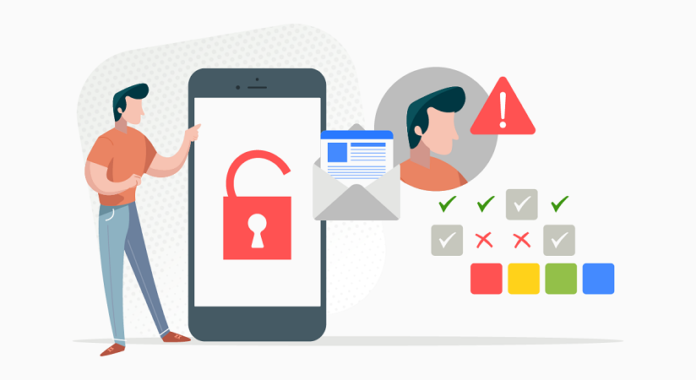It is no secret that the technology we use can make us a target of viruses and cyber-attacks if it is not adequately protected. When it comes to using mobile devices, a manual does not come with a phone that informs the user about mobile devices’ safety. Furthermore, threats are continually evolving and adapting to our habits.
Install An Antivirus
You’ve probably heard of laptop or desktop antivirus software, but your handhelds can benefit, too. This software can protect against viruses and hacking attempts. Some premium antivirus software also include VPN features as an added benefit.
Smartphones are handheld computers on which all necessary data and personal information can be stored. Always make sure to use a good antivirus, to save some good dollars on such tools, check here. By following these mobile security tips, you can better protect your device.
Your phone is always on the threat while you are browsing websites or downloading files; many viruses such as malware, adware, Trojans, or any extortion viruses can infect your phone. So We recommend you to use a useful antivirus app.
Keep your phone locked
One potential threat is your device’s theft, which gives the thief unrestricted access to your personal information. To avoid this, you make sure that your screen is locked. Whether it’s a passcode, pattern, fingerprint, or facial recognition, it’s up to you and your device’s capabilities.
When you activate a lock screen, you can choose how long you want the phone to be idle before it locks. Make sure to choose the shortest duration. This protects you by automatically activating the lock screen, even if you forgot to lock it yourself. This also saves battery, as the screen turns off after the set time.
Set strong passwords
Setting strong passwords for your apps makes it harder for a hacker to guess. We also recommend that you select a different password for each application. That way, if someone finds a password, the hacker won’t have access to all of your information.
Not only personal devices are a problem, but professional devices too. According to the 2018 Verizon Mobile Security Index report, only 39% of corporate mobile device users change all the default passwords, and only 38% use strong two-factor authentication on their mobile devices. Weak passwords can put an entire company at risk.
Keep your device’s operating system updated
Cell phone operating system updates are designed to enhance your experience. It can include anything from performance to security. Although they are familiar, and users tend to click quickly or ask the device to remind them in the future, it is essential to stay informed.
These updates can protect iOS and Android devices from newly discovered threats. To verify that your phone’s operating system is up to date, go to About Phone or General and then click on System Updates or Software Update.
Connect to secure WiFi
The good thing about mobile devices is that we can access the Internet anywhere and anywhere. One of the first things we do in a restaurant or at a friend’s house is WiFi. While free WiFi connection can save us data, it is essential to be careful with unsecured networks.
Make sure to connect to a VPN or virtual private network to be safe when using public WiFi. Discover Panda VPN for Android, with which you can enjoy a secure WiFi connection even on available networks. Changing your virtual system will protect your location and keep your information safe from prying eyes.
Beware of downloads
Download apps by downloading them from official app stores and check the ratings. Cybercriminals create unauthorized mobile applications posing as trust seals to obtain confidential information from users. To avoid this trap, look at the number of reviews, the latest update, and the organization’s contact details.
Don’t jailbreak or root your phone
Jailbreaking or rooting your phone is all about unlocking your phone and removing the manufacturers’ protections so you can access whatever you want. You may wish to jailbreak or root your phone to access unofficial app stores, but it does so with high risk.
The apps from these illegitimate stores have not been verified and can easily hack into your phone and steal your information.
Encrypt your data
Your smartphone contains a lot of data. If it’s lost or stolen, your email, contacts, financial information, and more can be at risk. To protect your cell phone data, you can make sure that the data is encrypted. The encrypted data is stored unreadable and, therefore, not understandable.
Most phones have encryption settings that you can enable in the security menu. To verify that your iOS device is encrypted, go to the settings menu and click on “Touch ID & Passcode.” You will be asked to enter your screen lock code. Then scroll down to the bottom of the page, where it should read, “Privacy is on.”
To encrypt an Android, the first thing to do is make sure your device is 80% busy and delete your phone’s root directory before you can continue. When these processes are complete, go to “Security” and select “Encrypt phone.” If you don’t upload, unzip, or interrupt the encryption process, all your data may be lost. Encryption can take an hour or more.
Consider using a password manager
Isn’t it strange that an almost conscious, disembodied voice can control our home, but we still use old, clumsy passcodes to get into our devices? And many amongst us still use the same simple yet easy-to-remember passwords for multiple logins.
It isn’t right. A password manager is like Lastpass is the solution. It “hides” your passwords behind a master password, and it is the only thing you need to remember.
Password managers can also generate robust passwords, so you don’t have to strain. Once installed, these applications will automatically populate your connections.
Some security experts say that you should turn off auto-complete on your phone and laptop. However, the less we have to think and interact with passwords, the better, we say. If you want more options, apps like Dashlane, 1Password, and Enpass are great alternatives.







